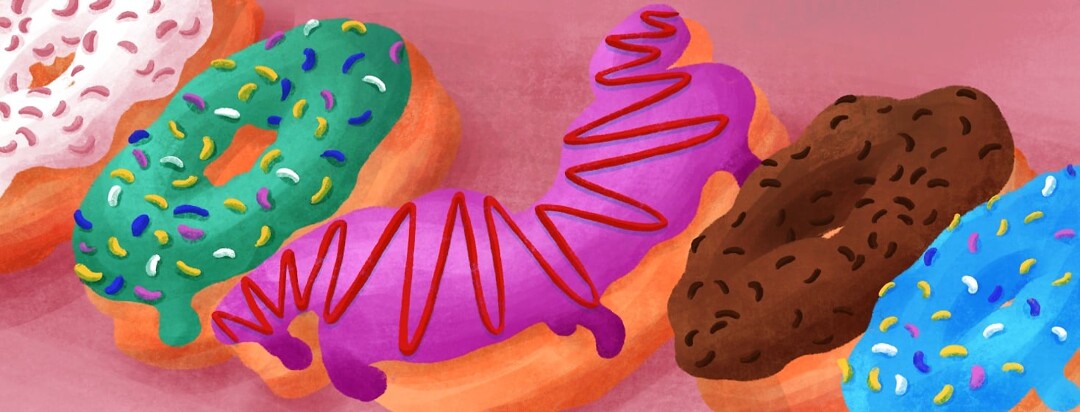Gluten and My Gut
Fluffy, sugary goodness...
It’s staring me right in the face during my first-period class.
The box of Jolly Pirate Donuts sits before me as a teenage boy begins his day with breakfast. He reaches inside his treasure trove. Smacks his lips. And I watch as he shoves a white-powdered-sugary donut into his mouth.
Oh how tasty you are, gluten
As a high school teacher, I’m used to kids who don’t get up early enough to eat before coming to school. Hurried parents placate them by driving through fast-food eateries. Then shove breakfast quickly into their child’s hands.
Over the course of this school year, a young male has carried in every breakfast item from bacon, egg, and cheese McGriddles to sausage biscuits and gravy. But on this morning, he has arrived with a dozen assorted donuts.
At one time, I enjoyed breakfast sandwiches and doughnuts. But a battle inside my body cranked up the intestinal pings, pangs, and pummeling.
Once I started paying closer attention to my body’s communication, I slowly realized that my ulcerative colitis didn’t like my early-morning food decisions. It felt like a war ensued in my gut right after eating certain cereals, toast, doughnuts, or biscuits.
Reading up: Does gluten affect ulcerative colitis?
One day, my stepmother asked if I had read the book titled "Wheat Belly." She suggested I read and consider whether gluten could be a trigger for my ulcerative colitis. After reading, I questioned whether my food choices were, indeed, exacerbating my UC.
What I learned is that our society no longer eats the wheat our ancestors once ate. To avoid droughts, to evade destructive bugs, and for faster production, the grain we eat today is hybridized. With this hybridized wheat come new proteins that have led to many health issues such as higher rates of celiac disease, type 1 diabetes, rheumatoid arthritis, and systemic inflammation.
As a person who never attended medical school, I don’t claim to understand all the enzymes that are produced in my intestinal wall when breaking down gluten in today’s new wheat. All I do know is that once I eliminated wheat from my daily food intake, I noticed my ulcerative colitis flares changed.
Gluten definitely affects MY colitis gut
In 30 years of suffering with an IBD, I never realized how what I ate impacted my colon. From iron deficiency or anemia to constant diarrhea or to bloody stool, I realized that cutting out gluten-laden products allowed my body to experience more times of UC remission.
Now, I’m not saying that EVERY person with ulcerative colitis is gluten-intolerant. All I know to be true is that my body for many years tried to signal my brain, “Hey, this food is NOT your friend!”
Even reading about what happens in my gut when I eat gluten, stresses and overwhelms me. Reading about peptides and enzymes versus the tissue and microvilli of my small and large intestines is just too much information for this English teacher.
I'm no gluten guru, but here's an idea...
So, for those who prefer it simple like I do, here’s what I suggest: Try 30 days without gluten. Pay attention to your body. Then, reintroduce it.
How do you feel now?
After years of ignoring the internal battles, I now believe the body knows best. If you feel better without gluten, then you are sensitive to it.
Yes, I put up with the “eye rolls” whenever I request gluten-free (GF) foods. But I know the war it creates inside my gut. To me, it’s not worth the pain.
Now, when I get asked, “Do you want a doughnut?” I reply in peace and comfort: “Thank you, NO.”

Join the conversation